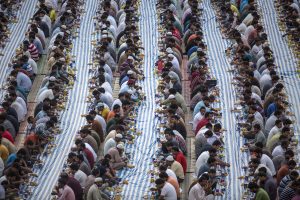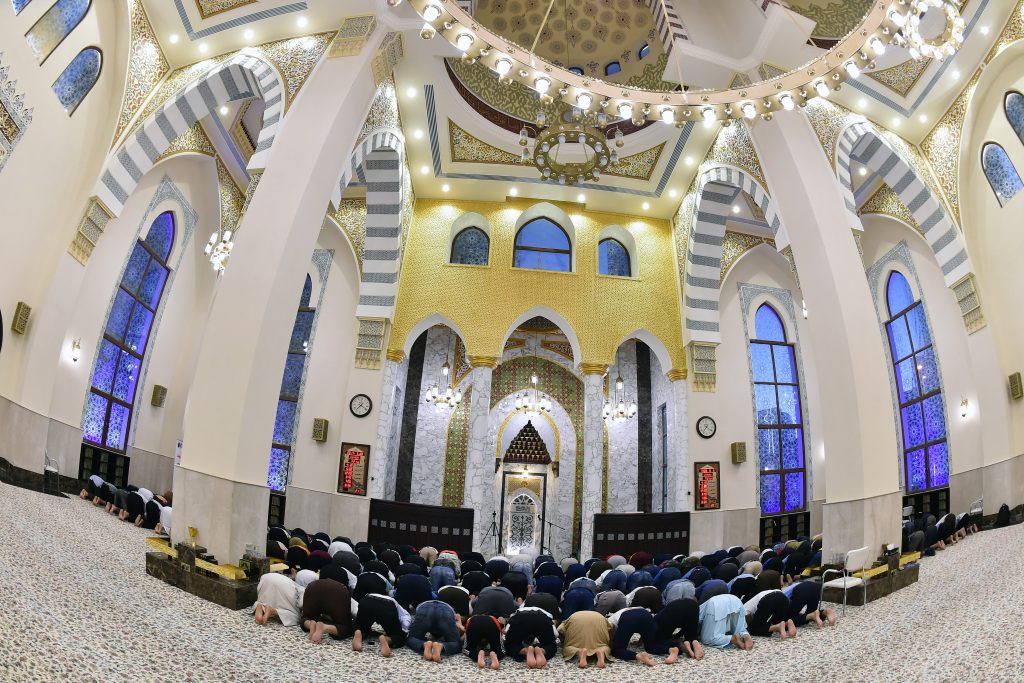São Paulo – Ramadan should begin on Wednesday (16). The exact date changes from year to year – the season usually begins the day after new moon, when a tiny portion of the Earth’s natural satellite can be seen in the sky. The season lasts 29 or 30 days, and this year it should end on June 15. Ramadan is the ninth month of the Islamic lunar calendar, a sacred time of blessings. Muslims are currently in the year of 1439.
During the holy month, from sunup to sundown, Muslims do not eat or drink (not even water is allowed), smoke or engage in intimate contact. According to Ali Zoghbi, vice president of the Federation of Muslim Associations in Brazil (Fambras), this is a time of prayer, religious reflection, charity and devotion. Prayer happens five times a day. “During this holy time, people’s focus shifts towards the spiritual and away from the material,” he explained.
““Charity becomes multiplied during this time, and we also go on our ‘tongue fast,’ meaning we encourage people not to speak ill of one another and to exercise forgiveness, compassion and mercy,” he said.
Tamer Mansour, an Egyptian Muslim and the special projects advisor with the Arab Brazilian Chamber of Commerce, claims “Ramadan is a time to increase prayers, thoughts, the reading of the Koran, and to realize we are all equal, rich or poor, we are all equals in our fasting.”
According to Zoghbi, non-Muslims who interact with Muslims or plan to travel to an Islamic country during Ramadan are advised not to drink, eat or smoke in the presence of someone who’s fasting, thereby displaying alterity (the ability to put oneself in the other’s place). All Muslims must observe Ramadan from adolescence on, except those who are travelling, pregnant women or lactating mothers, children, the elderly and the sick. In these cases, believers are advised to donate food to people in need.

In breaking the fast (Iftar), after the sun has set, Muslims will often eat a date and have a glass of milk or yoghurt before eating an actual meal, usually with family and friends around.
Ramadan culminates in the biggest celebration in the Muslim calendar, the fast-breaking (Eid Al-Fitr). Believers will usually dress their best, adorn their homes and serve foods to family, friends and other members of the community. Brazilian mosques will also celebrate.
Business
In Islamic-majority countries, work and business hours change during Ramadan. Many establishments shut their doors during the day, especially cafés and restaurants. Shops and malls also adopt different work hours.
The workday becomes two hours shorter, and overall hours change in many Muslim countries, therefore people and businesses aren’t often as available as usual for contacts or meetings. Changes differ from country to country. “This is a month of devotion and preservation for Muslims, therefore one is better off avoiding any kind of conflict or controversy, as a sign of respect for this holy moment,” explained Zoghbi.
Islamic nations will usually stockpile food and other goods prior to Ramadan, since business activities diminish. The regular routine and deal-making resume once the holy month is over.
Numbers
Muslims are the fastest-growing population in the world, numbering at over 1.6 billion right now – almost 25% of the world population. This is expected to reach 2.8 billion by 2050, with Islam overtaking Christianity to become the biggest religion in the world, according to the State of the Global Islamic Economy 2017/2018 report by Thomson Reuters. Islam is widespread in African, Asian and Middle Eastern countries. Brazil is home to some 800,000 Muslims, according to Fambras.
Quick facts
According to Fambras, all mosques in Brazil will feature special activities during Ramadan, including daily prayers and free fast-breaking hours (Iftar), besides the Eid Al-Fitr celebration.
Find out more from the Fambras website.
Translated by Gabriel Pomerancblum




